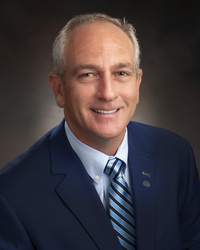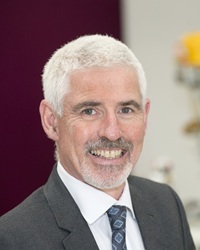
Messages from the Senior Advisors
Messages
The Fukushima Daiichi Nuclear Power Plant accidents had a significant impact on society and has greatly affected the residents of Fukushima Prefecture and the people of Japan. Although 14 years have already passed, there are still areas where returning is difficult, and while decommissioning work is progressing gradually, there is still a long way to go. The Japan Atomic Energy Agency (JAEA) is Japan's only research institution that has contributed to various industrial applications and the advancement of science and technology using radioactive materials and nuclear energy. The decommissioning of the Fukushima Daiichi Nuclear Power Plant and the reconstruction of Fukushima are essential tasks that must be accomplished. As a group of nuclear energy experts, JAEA has actively contributed to these efforts and must continue to do so with even greater commitment.
Meanwhile, the decommissioning requires the handling of an extremely large volume of radioactive waste. At the Fukushima Daiichi Nuclear Power Plant, even materials such as concrete—which would typically be classified as industrial waste at a conventional reactor—must be treated as radioactive waste. Since the goal of decommissioning is waste processing, it is important to view decommissioning from the perspective of waste management. Moreover, the retrieval of fuel debris represents an unprecedented and extremely challenging research and development endeavor for humanity. On a laboratory scale, JAEA possesses the technology to safely retrieve fuel debris and process radioactive waste even under such harsh conditions. However, considering that all operations must be conducted remotely, and given the massive volume of fuel debris and radioactive waste equivalent to that from three reactors, it is not feasible to simply apply laboratory-scale technologies as they are. Therefore, it is essential to steadily advance technological development.
CLADS (Collaborative Laboratories for Advanced Decommissioning Science), as its name includes “international collaboration,” serves as a hub for partnerships related to the reconstruction of Fukushima, both domestically and globally. Around the world, there are research institutes—like JAEA—with experience in handling fuels such as uranium and various radioactive materials. It is important for JAEA to collaborate with global research institutes in countries such as the United States, the United Kingdom, and France, which have extensive experience with radioactive substances, to achieve the reconstruction of Fukushima.
To clarify the challenges involved in decommissioning and the necessary research and development efforts, CLADS continues to regularly update the “Decommissioning Science Diagram” . The fields targeted by CLADS span a wide range of research areas. In addition to nuclear-related fields, it is essential to promote international collaborative research with disciplines beyond nuclear energy and to contribute to society in non-nuclear areas as well.
For the reconstruction of Fukushima and the advancement of Japan, CLADS will continue its research and development efforts. These include extremely difficult and unprecedented research themes that humanity has never encountered before. Working in collaboration with the world, we aim to accelerate the recovery of Fukushima as soon as possible.

Senior Advisor
Koji OKAMOTO
I serve as a Senior Advisor of CLADS tasked to contribute advice and knowledge of U.S. national laboratory experiences in the sciences and engineering applicable to 1F decommissioning. Having participated in the initial response and subsequent U.S. DOE national laboratory support to the work at the Fukushima Daiichi NPS, it is also an honor to be able to extend to CLADS a conduit to the extensive knowledge and expertise within the U.S. system of national laboratories that have supported similar efforts in the U.S. DOE. Leveraging and collaboration is critically important for current and future generations of scientists and engineers in such a unique and technically complex endeavor to decommission 1F.

Senior Advisor
Andrew P. Fellinger
It is great pleasure to join the JAEA team as a Senior Advisor of CLADS. I remember the events following the 2011 tsunami clearly and have been interacting with those leading the response for many years.
Whilst recognising that Fukushima Daiichi is first and foremost a Japanese challenge, the whole nuclear sector understands deeply the importance of building trust and confidence in the ongoing work of ensuring ongoing safety and active decommissioning at the site. I am pleased to have initiated and led the LongOps programme including hosting long term secondees from JAEA and TEPCO at RACE in the UK.
More recently it was a pleasure to sign an agreement with the new Fukushima Institute, F-REI. These are examples of building strong international links to continue to make sure and solid progress over the coming decades.

Senior Advisor
Rob Buckingham